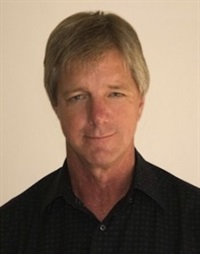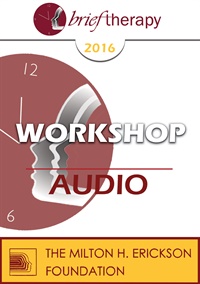BT16 Workshop 13 - Transforming Negative States: An Essential Skill in Generative Therapy - Stephen Gilligan, PhD
- Average Rating:
- Not yet rated
- Topic Areas:
- Psychotherapy | Workshops | Generative Psychotherapy | Addiction | Anxiety | Depression | Trauma
- Categories:
- Brief Therapy Conference | Brief Therapy Conference 2016
- Faculty:
- Stephen Gilligan, PhD
- Duration:
- 2:36:56
- Format:
- Audio Only
- Original Program Date:
- Dec 09, 2016
- License:
- Never Expires.
Description
Description:
This workshop presents the Generative Psychotherapy approach to human states of suffering--depression, anxiety, trauma, addiction, etc. This practical and positive approach assumes that each core human experience has equivalent potential to be positive or negative, depending on the human relationship to it; and thus focuses on how problems may be transformed to resources by skillful human connection. This process operates at two levels: (1) developing a generative state (in the therapist, client, and relationship field) and then (2) using specific methods of transforming negative experiences and behaviors. Multiple techniques and examples for will be given, along with an exercise and demonstration.
Educational Objectives:
- Identify three major types of negative responses that will block therapeutic change.
- Identify three methods for transforming these negative responses to positive resources.
- Identify the four major communication methods for positively welcoming a negative experience.
*Sessions may be edited for content and to preserve confidentiality*
Credits
Faculty

Stephen Gilligan, PhD Related Seminars and Products
Stephen Gilligan Ph.D., is a Psychologist in Encinitas, CA. He was one of the original NLP students at UC Santa Cruz; Milton Erickson and Gregory Bateson were his mentors. After receiving his psychology doctorate from Stanford University, he became one of the premier teachers and practitioners of Ericksonian hypnotherapy. This work unfolded into his original approaches of Self-Relations and Generative Self, and then further (in collaboration with Robert Dilts) into Generative Coaching. These different traditions have all been updated and integrated into the present Generative Change Work, which includes the applications of Generative Coaching, Generative Psychotherapy, Generative Trance, Hero’s Journey, and Systemic Change work.


